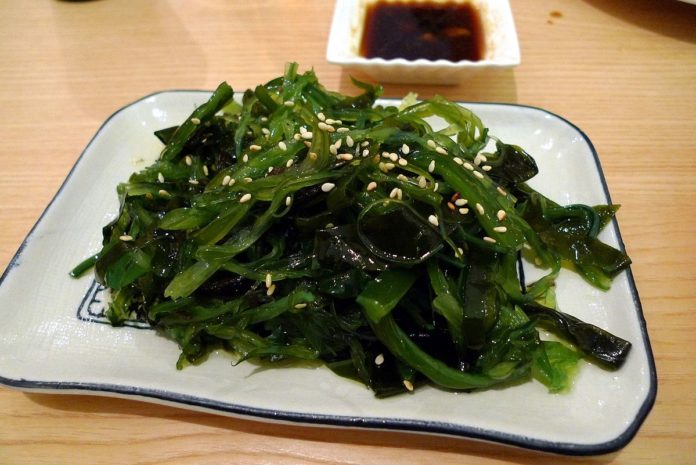For centuries, Kelp has been a crucial part of East Asian Diets. This diet has become popular across the globe due to its wide range of potential benefits. It is highly beneficial to fight iodine deficiencies and prevent blood clots, and it also helps with diabetes.
Kelp is a rich source of vitamins and nutrients, and at the same time, it is low in calories, making it a healthy addition to any diet. Here is all you need to know about kelp.
What is Kelp?
Kelp is a famous brown seaweed, and it grows as large as trees in the underwater forests. Though seaweed can grow in fresh or saltwater, kelp is found in saltwater, usually along cold, nutrient-rich, rocky coastlines.
Kelp Nutritional Facts
½ cup of raw kelp contains the below-mentioned nutritions:
- Calories – 17.2
- Fiber – 0.5g
- Protein – 0.7g
- Sugars – 0.2g
- Fat – 0.2g
- Sodium – 93mg
Vitamins and Minerals – Kelp is a great source of vitamins and minerals, including folate, vitamin A, C, K, and E, vitamin B6, and vitamin B12. Kelp also contains small amounts of pantothenic acid, thiamin, riboflavin, and niacin.
Kelp is an amazing source of iodine. Other minerals found in kelp include sodium, phosphorous, calcium, magnesium, and iron.
Carbs – ½ cup serving of raw kelp contains 3.8g of carbohydrate. It also contains 1 gram of sugar and 0.5 grams of fiber.
Protein – ½ gram serving of kelp contains only 0.7 grams of protein.
Fats – Fats are very low in raw kelp.
Different varieties of Kelp
Kelp is found in approximately 30 different varieties, and it provides nutrition for varied sea life. As it is high in nutritional value, people also consume kelp. Kelp has been a prominent part of the Japanese diet for hundreds of years. Now the food has become popular in other parts of the world also.
Kelp Health Benefits
Kelp is loaded with nutritional value. It is low in calories but rich in minerals, vitamins, and fiber. Hence it offers a wide range of health benefits when it is included in a balanced diet.
Kelp is loaded with vitamin c, which helps in preventing disease. It also contains iron, which is essential for healthy blood. Calcium present in kelp assists in bone health. In addition to this, Kelp is also loaded with iodine, which helps maintain a healthy metabolism, and it also contributes production of thyroid hormones. Below mentioned are other kelp health benefits.
-
Lowers High Blood Pressure
Some compounds present in kelp like fucoxanthin and fucoidan might help prevent high blood pressure issues; folate is highly beneficial in maintaining healthy blood pressure. In addition to this, seaweeds are a rich source of vitamin B, contributing to managing a healthy heart.
-
Encourages Weight Loss
According to certain studies, the fiber found in kelp helps attain the feeling of fullness and satiety, which encourages people to consume fewer calories, which helps in losing weight effectively. Kelp is low in calories and fats, and it is a rich source of antioxidants named fucoxanthin, which helps with weight loss.
-
Lowers Cancer Risk
Though some more research in this context, three compounds present in seaweed are beneficial in fighting cancer. Fucoidan found in kelp might kill cancer cells and can also stop their length. These three compounds include:
- Polyphenol (antioxidants)
- Fucoidan (fiber found in seaweed)
- Polyunsaturated fatty acids
-
Helps in Treating Iodine Deficiency
Kelp is loaded with high iodine content. It helps in improving thyroid function by increasing the concentration of iodine. Iodine also helps maintain a healthy metabolism, and it is also essential for the production of thyroid hormones.
-
Helps in Treating Diabetes
Powdered pills of kelp help in reducing sugar levels. Kelp is found beneficial in treating diabetes. Certain studies present evidence that consuming kelp decreases post-meal blood sugar levels and levels of serum lipid.
Kelp Adverse Effects
Kelp is likely safe if it is consumed in the amounts that are typically found in food. Nevertheless, a high concentration of potentially heavy metals and a high amount of iodine can be harmful to your health if you consume kelp in high amounts.
Though iodine is good for health, avoid consuming too much iodine as it can lead to serious health issues like goiter and thyroid gland inflammation. Too many heavy metals can also impact thyroid functioning in your body.
Due to these reasons, experts suggest that breastfeeding or pregnant women and people with thyroid disorders should avoid consuming kelp.
How to Prepare Kelp?
You can consume kelp in different ways. You can add raw kelp in stir soups and dry dishes. Dried kelp can also be added to smoothies and salads. You can also dry kelp while cooking dried beans to improve the flavor. It can also be used to add flavor to broths and soups.

















